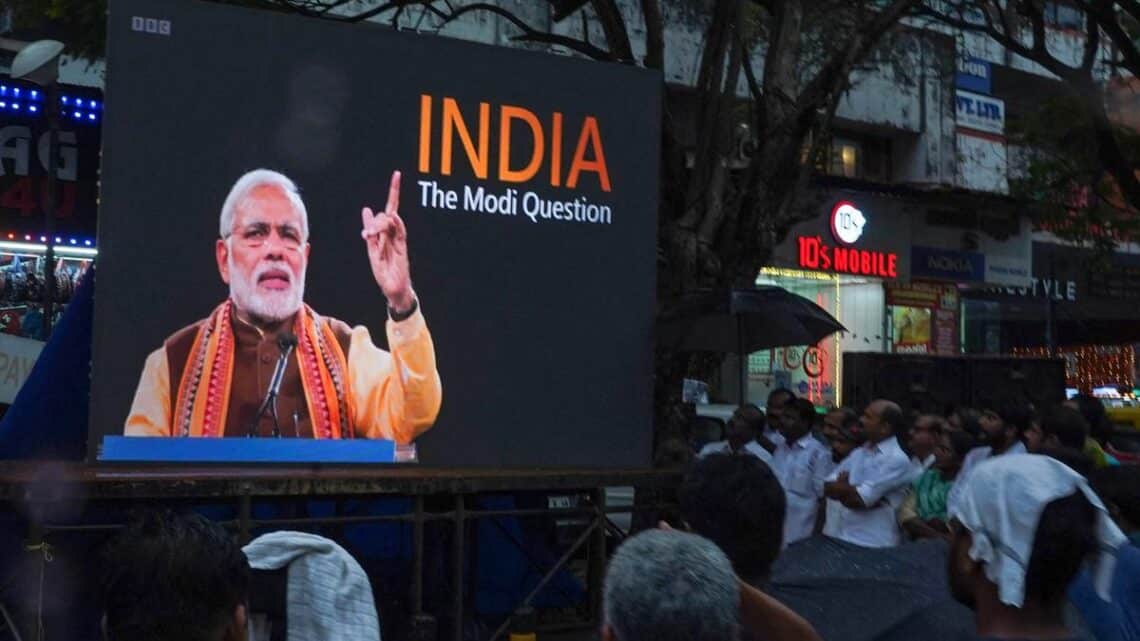[ad_1]

People watch the BBC documentary “India: The Modi Question”, on a screen installed at the Marine Drive junction under the direction of the district Congress committee, in Kochi on January 24, 2023.
| Photo Credit: AFP
The second part of a two-part controversial documentary series, ‘India: The Modi Question’ , aired in the United Kingdom on Tuesday evening, examining the evolution of the Modi government’s relationship with India’s Muslims as well as communal relations in the country since 2014.
The government had denounced and banned the first part of the documentary, which aired last week in the U.K. and described a British government report that held Prime Minister Modi , then Chief Minister of Gujarat, responsible for the 2002 Gujarat riots. The government criticised the program, saying it lacked objectivity, reflected a “continuing colonial mindset” and was “propaganda”.
The second part, which aired on BBC Two at 9 P.M. local time, starts with a repeat of introductory scenes shown in the first part. It seeks to trace the evolution of the relationship between the Modi government and India’s Muslim minority. The series is sprinkled with graphic videos and images—starting with a 2017 lynching in Jharkhand.
In its runtime of approximately 60 minutes, the second part discusses BJP’s unprecedented victory in 2019 and what it means to have a government with a stronger mandate. “Essentially the gloves are of,” one of the commentators, Chris Ogden, a political scientist says.
The series then moves to August 5, 2019, and the changes to the legal status of Jammu and Kashmir (i.e., the abrogation of Article 370). It shows scenes of what are described as protests in Jammu and Kashmir, followed by a discussion on the National Register of Citizens (NRC) and the Citizenship Amendment Act (CAA) protests, and the riots in Delhi in 2020. The episode includes footage of security forces beating bleeding semi-conscious protestors who are being forced to sing the national anthem, even as they plead that they are “Bharatvasis” (Indians). The second part also includes interviews with protestors, families that have been detained under the NRC and the kin of those who died allegedly at the hands of the police during the Delhi violence of 2020.
There are also scenes from Mr Modi’s rally in Ahmedabad with then U.S. President Donald Trump in February 2020.
“Under Narendra Modi, India has been transformed. He remains enormously popular and hugely divisive,” the narrator says towards the end of the program.
[ad_2]












